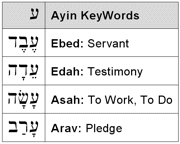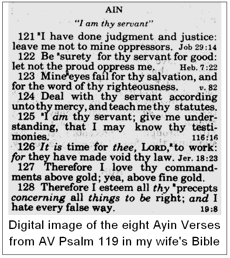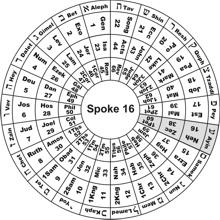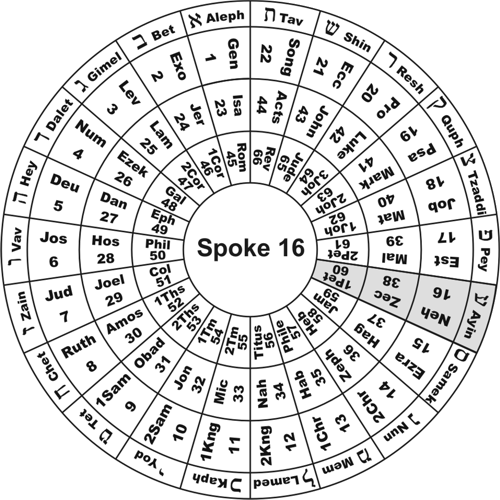Open Thine Eyes to the Prayer of Thy Servant!
And it came to pass, when I heard these words, that I sat down and wept,
and mourned certain days, and fasted, and prayed before the God of heaven, And said, I beseech thee,
O LORD God of heaven, the great and terrible God, that keepeth covenant and mercy for them that love
him and observe his commandments: Let thine ear now be attentive, and thine eyes open, that thou
mayest hear the prayer of thy servant, which I pray before thee now,
day and night, for the children of Israel thy servants, and confess the sins of the children of Israel, which
we have sinned against thee: both I and my father's house have sinned.
Nehemiah 1:4ff (Spoke 16, Cycle 1)
 Nehemiah
led the third great wave of Jews returning from the Babylonian Exile in the year 444 BC following the initial
wave under Zerubbabel in 536 BC and the second wave under Ezra in 457 BC. He was a servant (cup bearer)
of King Artaxerxes when he heard a report of the sad condition of Jerusalem in disrepair. Thus he wept,
and prayed the prayer that opens his Book which "just happens" to contain eight occurrences of the
Ayin KeyWord ebed (servant) from AV Psalm 119: Nehemiah
led the third great wave of Jews returning from the Babylonian Exile in the year 444 BC following the initial
wave under Zerubbabel in 536 BC and the second wave under Ezra in 457 BC. He was a servant (cup bearer)
of King Artaxerxes when he heard a report of the sad condition of Jerusalem in disrepair. Thus he wept,
and prayed the prayer that opens his Book which "just happens" to contain eight occurrences of the
Ayin KeyWord ebed (servant) from AV Psalm 119:
- AV Ps 119:125 I am thy servant (ebed); give me understanding, that I may know thy testimonies (edah).
To get a sense of the density of this KeyWord, I reproduce here the entire first chapter of Nehemiah:
The words of Nehemiah the son of Hachaliah. And it came to pass in the month Chisleu,
in the twentieth year, as I was in Shushan the palace, That Hanani, one of my brethren, came,
he and certain men of Judah; and I asked them concerning the Jews that had escaped,
which were left of the captivity, and concerning Jerusalem. And they said unto me,
The remnant that are left of the captivity there in the province are in great affliction
and reproach: the wall of Jerusalem also is broken down, and the gates thereof are burned with fire.
And it came to pass, when I heard these words, that I sat down and wept, and mourned certain days,
and fasted, and prayed before the God of heaven, And said, I beseech thee,
O LORD God of heaven, the great and terrible God, that keepeth covenant and mercy for them that
love him and observe his commandments: Let thine ear now be attentive,
and thine eyes open, that thou mayest hear the prayer of thy servant,
which I pray before thee now, day and night, for the children of Israel thy servants,
and confess the sins of the children of Israel, which we have sinned against thee: both
I and my father's house have sinned. We have dealt very corruptly against thee,
and have not kept the commandments, nor the statutes, nor the judgments,
which thou commandedst thy servant Moses. Remember, I beseech thee, the word that
thou commandedst thy servant Moses, saying, If ye transgress,
I will scatter you abroad among the nations: But if ye turn unto me, and keep my
commandments, and do them; though there were of you cast out unto the uttermost part
of the heaven, yet will I gather them from thence, and will bring them unto the place that
I have chosen to set my name there. Now these are thy servants and thy
people, whom thou hast redeemed by thy great power, and by thy strong hand.
O Lord, I beseech thee, let now thine ear be attentive to the prayer of thy servant,
and to the prayer of thy servants, who desire to fear thy name:
and prosper, I pray thee, thy servant this day, and grant him
mercy in the sight of this man. For I was the king's cupbearer.
Nehemiah 1:1-11 (Spoke 16, Cycle 1)
 The great density of this Ayin KeyWord in Nehemiah's opening prayer is similar
to the maximized density of comfort in the opening passage of 2 Corinthians on Spoke
3 (BW book pg 160) and of the Number Four in the opening vision of Ezekiel on Spoke 4
(BW book pg 178). Moreover, it reflects God's own repetitive
use of ebed as a secondary KeyWord in two alliterative Ayin verses: The great density of this Ayin KeyWord in Nehemiah's opening prayer is similar
to the maximized density of comfort in the opening passage of 2 Corinthians on Spoke
3 (BW book pg 160) and of the Number Four in the opening vision of Ezekiel on Spoke 4
(BW book pg 178). Moreover, it reflects God's own repetitive
use of ebed as a secondary KeyWord in two alliterative Ayin verses:
- Be surety (arav) for thy servant (ebed) for good: let not the proud oppress me. AV Ps 119:122
- Deal (Asah) with thy servant (ebed) according unto thy mercy, and teach me thy statutes. AV Ps 119:124
The digital image of the Ayin verses from AV Psalm 119 in my wife's Bible,
subtitled "I am thy servant," shows how obvious this theme is. It plays an
exalted role in the revelation of God's Servant, the Branch in Zechariah on the second Cycle of Spoke 16.
Next article: Open Thine Eyes, O Lord! (Nehemiah 1 Peter) 1 Peter)
|



